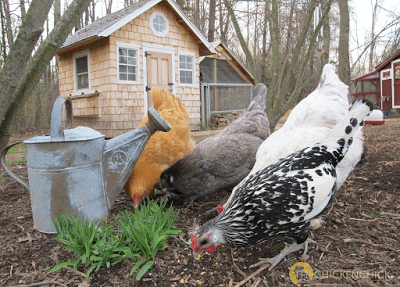
There are several types of chicken feed, each with its own advantages and disadvantages. Choosing a good feed for egg-laying hens is an important aspect of owning chickens. In addition to providing nutrition and energy to your chickens, a good feed can also protect them from disease. Read on to discover the different types of chicken feed available for sale. You should also consider how much each ingredient in the feed should weigh, as the right amount of each nutrient can have a significant impact on the health of your chickens.
Contents
Choosing a good chicken feed supplier
There are several factors to consider when selecting a good chicken feed supplier. The feed you choose should contain a variety of nutrients and be balanced. Chickens are domesticated animals that depend on their owners for their basic needs. You may want to make your own chicken feed, but it can be difficult to find the right mix of ingredients. Commercial chicken feed is available in a variety of forms. There are medicated and unmedicated starter feeds, crumbles and pellets, and meat bird feed. You can also buy organic scratch or feed for your chickens.
When choosing a feed supplier, you should know that chickens need different types of food based on their age, use, and environment. Starter crumbles are recommended for day-old chicks and are primarily comprised of 20 to 24 percent protein. These types of feed are formulated to support early growth and are perfect for the first few weeks of chicken life. You can also purchase medicated feeds for your chickens to help prevent disease. These types of feeds usually contain chemical compounds like amprolium.
Ingredients in chicken feed
When you’re shopping for chicken feed, you’ll want to look for a nutrition tag. This will tell you what’s in the feed, as well as the percentage of the main ingredients. You’ll also want to look for high protein content. Chickens need between fifteen and eighteen percent protein, and the source of this protein should be grains or soy meal. The nutrition tag will also tell you if it contains all corn, or just individual grains.
In addition to these requirements, a good feed for chickens needs a balance of nutrients. It must be rich in vitamins and minerals, as well as fats. Fats and protein foods are also essential for healthy chicken growth. The bulk of the components of chicken feed are cereal grains. This is an economical choice, but it can have negative effects on the health of the chickens. To prevent this from happening, manufacturers add feed additives to preserve the cereal grains.
Choosing a good chicken feed
When it comes to raising your chickens, choosing the right feed is crucial to ensure a healthy flock. Before mass production, chickens were typically raised on grass alone, but in recent decades, feed has become a science. Depending on your chickens’ age, breed, and dietary preferences, you should choose a solid chicken feed to maximize their potential. Free-range chickens are also a good option for those with a tight budget, as they have access to greens and high-protein insects. If you choose to buy your chicken feed, you should check for ingredients like oyster shell and probiotics, which are beneficial to chicken digestion and egg production.
Depending on your specific needs, you can choose a commercial formula or prepare homemade feed for your hens. The only drawback to homemade feed is that it requires blending of grains. A good commercial formula includes vitamins and minerals, and is designed to provide a balanced diet. Some chicken feeds are even “complete,” meaning they contain everything your chicken needs. There are several varieties of commercial chicken feed, so you can find a blend that suits your needs and your budget.
Choosing a good chicken feed for egg-laying hens
There are many different types of feed for egg-laying hens, so it is important to choose one that suits your specific needs. The main source of protein in chicken feed is corn, while fish meal provides a bit of protein and is an excellent source of calcium and phosphorus. There are even soy-free alternatives. While these are not available everywhere, you can check your feed dealer’s website for more information.
The best feed for egg-laying hens is one that contains no artificial additives and is certified organic. Organic feed has less preservatives, and tends to spoil faster. Compared to pellets, a good chicken feed should have a balance of vitamins and minerals. Whole grains and pellets are preferred by most chickens, although crumbles are easier for sensitive stomachs to digest. Be aware that crumbles may cause more food waste.




